“There are no Dalits in our Parish. Almost all our parishioners are well-to-do, studying in schools and colleges and there are several of them who have come up in life because of the various concessions extended to them by the schools/colleges run and managed by the clergy. Most of them speak English and some have even travelled abroad. They have more jewellery than others, they have better businesses than others, and even if they are domestic workers/daily wage labourers, they send their children to English medium schools, paying very high fees in schools managed by the Catholic clergy. Why do such people want to enrol their children in English medium convent schools when they cannot afford the same?”
Such statements, made by the clergy, leaders in churches and NGOs not only send out wrong messages but also affect the way we understand casteism, classism, social and political stratification, our attitude to education, wealth, discrimination, and how we define inequality.
It is hard to know if these statements stem from ignorance, jealousy or a caste arrogance that wants the status quo to be maintained. Such statements have far reaching consequences, influencing our collective mindsets, and the way governments and societies perceive atrocities on Dalits, and Dalit Rights. Such ideas, attitudes and insights do not come about by chance. They are the result of hard edged decisions made by politicians, policy makers, leaders, historians, and activists to reconfigure how we comprehend Dalits in a democracy.
The word ‘Dalit’ has become synonymous with ‘dirty’, ‘poor’, ‘illiterate, ‘unkempt’, ‘lazy’ and even ‘downright uncivilized’. How did this happen? How does this pseudo-denotation continue today? Who benefits? What is the loss for the Dalits? What underlies their struggle to reiterate their significance, and fight the inequality and deep discrimination they face that side-lines the importance of the rich culture that they add to the panorama of Indian Catholic culture, tradition, conservation of the environment, eco-systems and the very way of life?
Meet Arokiamary Maghimaaidas, aged around 47 years. She is a Tamizhian from Thiruvunamalai. Her grandfather and father were both catechists at the church in Vandavasi. She studied in a convent school from class III to SSLC. She has won several accolades in dance, singing, kabbaddi and kho-kho. When she was around 25 years her marriage was arranged, and she re-located to Bangalore. She belongs to the Mother of Perpetual Help Church, Akashnagar, Bangalore. She learnt Kannada, as this would help her in reaching out to people better. She can converse as fluently in Kannada as in Tamizh.
During our conversation, Arokiamary shared instances of clergy who treat Tamizh and Tamizhians with disdain and contempt. In general, with few exceptions, there is a condescending attitude towards Tamizh Dalits. Even in her church they are looked on with scorn by Dalits who consider themselves “better” because they do not eat beef. She shares several of her experiences, where the clergy and the so-called dominant-caste parishioners make use of the services of Dalits in doing menial and difficult jobs in the church. What pains and angers Tamizhians is that the head of the church is a silent bystander to the vilification and belittling of Dalit Catholics who speak a certain language. “Why, and how, is there caste discrimination in the church? Are we all not only Christians, with no caste or creed or class?” she asks with deep hurt.
None of this however, can dampen her passion to work for her church. She has single-handedly been instrumental in expanding the base of the ‘faithful’ in the sub-station which is her parish now. She has convinced the nuns of St. Anne’s of Thiruchanapalli to meet and visit the faithful in her parish. Ironically, there are some priests who have actively discouraged her. With a twinkle in her eyes, she laughs saying, “I go on with my work, because what I am doing is for my church and my God, not for any priest.”
What troubles her is that several Dalits do not even realise that welfare and entitlements from the government can be availed of as a “right”. On the contrary, they have been told that to remain in poverty is better than availing of entitlements from the government. The dominant-caste parishioners object to entitlements being claimed by the Dalits from the government or the church.
The Church is India is making efforts to address this disease among its people. In September 2016, at the 129th Standing Committee meeting of the Catholic Bishops’ Conference of India (CBCI) “The Policy of Dalit Empowerment in the Catholic Church in India” was approved and subsequently released on December 13, 2016. It clearly spells out that Dalit women need to be given space in Church leadership and in decision making. Unfortunately, to comply with this, positions are given to a few Dalits in the church who are but figure-heads as they will not challenge the status quo.
Tired of the discrimination they face from the so-called dominant castes in the Church and the State, Dalit women are set to unleash their power. Dalit Christian Women for Change (DCWC) is an initiative of the CBCI Office for Dalit and Backward Classes. This National Forum was formed on February 13, 2017 when Dalit Women leaders gathered at the Jesuit Indian Social Institute (ISI), Bangalore. The ISI initiates programmes and activities to give a voice to the marginalised, and encourages liberal and rights-oriented thinking and action. Their gender studies unit works especially for the upliftment and empowerment of women, with special reference to Dalits, and the DCWC looks to their collaboration as it seeks to analyse and create awareness of the reality of Dalit Christian women, build a DCWC movement across India, and enhance the capacity of Dalit Christian women leadership to enable them to sit at the decision-making table in the Church.
Jesuits are known for their missionary zeal and their penchant for challenging conventional practices and exploring the unknown. Their passion for initiating and deepening a rights-oriented development is also well known. In this context it would be only natural for Jesuits to recognise and denounce the prevalent harsh treatment meted out to women and Dalits in the Church. Dalits are being subtly side-lined by the so-called dominant castes within the Church, and the time has come to recognise that this discrimination, both overt and covert, is disintegrating the Church from within and outside. Jesuits must address these issues of inequality, injustice, and biases. In their homilies, talks and seminars they should steer conversations towards changes in attitudes, and engaging people from all walks of life in understanding the true meaning of loving one’s neighbour. Jesuit institutions could go a step further, by reiterating these thoughts and practices, so that the positional power held by the dominant castes can make spaces for Dalit women. It is only when we identify and support the personal power and leadership of Dalit women that we can hope to develop a more robust and spiritual Catholicism.
The author is a Women & Child Rights’ Activist.


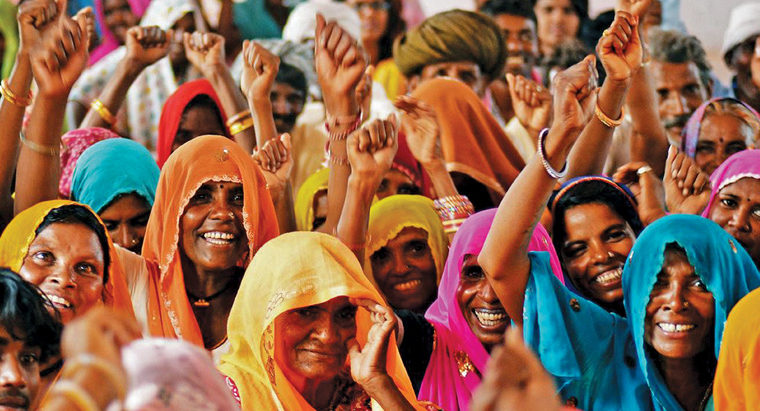
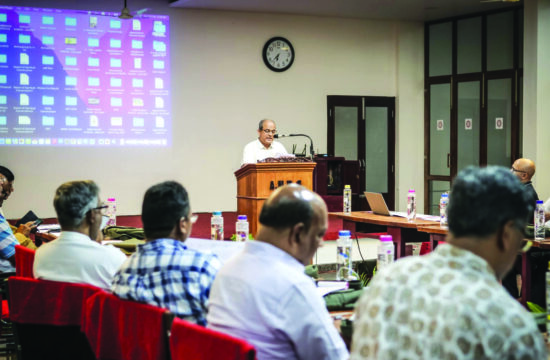


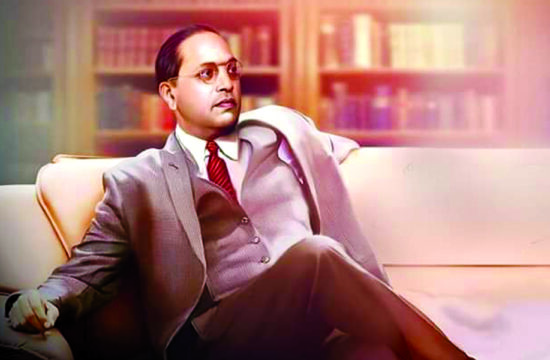

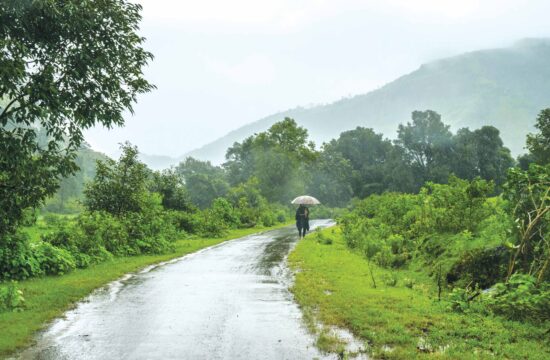
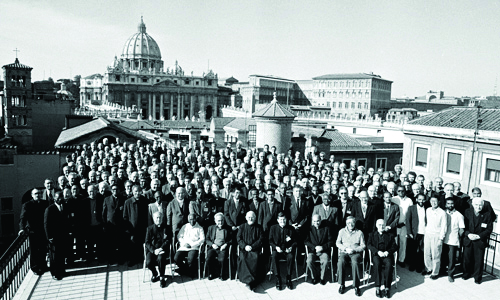
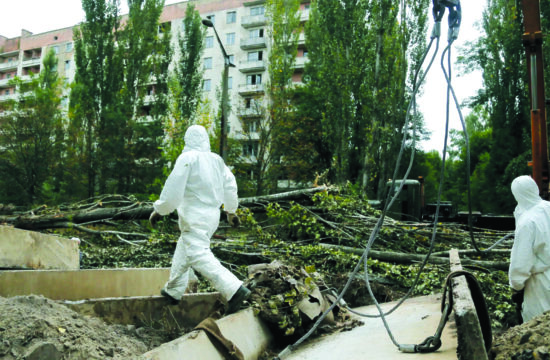

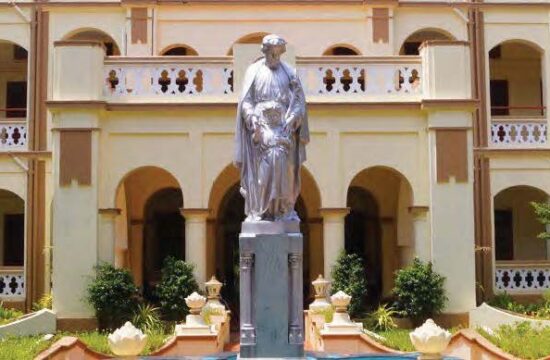
Hi there! This post couldn’t be written any better!
Reading through this post reminds me of my old room mate! He
always kept chatting about this. I will forward this post to him.
Fairly certain he will have a good read. Many thanks
for sharing!
Great post. I used to be checking constantly this blog and I am inspired! I take care of such
I take care of such
Extremely helpful info specifically the remaining part
information much. I was looking for this particular information for a long time.
Thank you and good luck.
Yes! Finally something about gamefly.
This article provides clear idea for the new
users of blogging, that in fact how to do blogging.
Cialis Diario Hpb Cialis On Line Buy buy cialis Buy Prednisone 5mg Buy Albuterol Sulfate Inhaler Online Buy Generic Tamoxifen No Prescription
When some one searches for his vital thing, so he/she needs to be available that in detail, thus that thing is maintained over here.
It’s awesome designed for me to have a website, which is good designed for my experience.
thanks admin
Greetings! I know this is somewhat off topic but I was wondering if you knew where I could find
a captcha plugin for my comment form? I’m using the same
blog platform as yours and I’m having problems finding one?
Thanks a lot!
You are so cool! I don’t believe I have read a single thing like this before.
So good to discover someone with a few genuine thoughts on this subject.
Really.. thanks for starting this up. This web site is something that is required on the internet, someone
with a bit of originality!
We’re a group of volunteers and opening a new scheme in our
community. Your site offered us with helpful information to work on. You have performed an impressive process and our entire group will probably be thankful to you.
Hi, I do believe this is an excellent website. I may return yet again since i have bookmarked it.
I may return yet again since i have bookmarked it.
I stumbledupon it
Money and freedom is the greatest way to change, may you be rich and
continue to help others.
I was able to find good info from your articles.
What’s up all, here every one is sharing these familiarity, therefore
it’s good to read this webpage, and I used to pay a quick visit this weblog daily.
It’s amazing to go to see this web site and reading the views of all mates concerning this post, while I am
also zealous of getting know-how.
Appreciation to my father who stated to me about this blog,
this website is truly awesome.
Thanks for sharing your thoughts on g. Regards
Fastidious replies in return of this difficulty with genuine arguments and telling all about that.
I am not sure where you are getting your info, but good topic.
I needs to spend some time learning much more or understanding
more. Thanks for fantastic information I was looking for this information for
my mission.
Hello i am kavin, its my first time to commenting anyplace, when i read this paragraph
i thought i could also make comment due to this brilliant article.
It’s amazing for me to have a site, which is valuable in favor of my
experience. thanks admin
I really like it when individuals get together and share opinions.
Great website, keep it up!
Your method of telling all in this paragraph is actually fastidious, all be able to simply understand it, Thanks a lot.
Hi there! Quick question that’s totally off topic.
Do you know how to make your site mobile friendly?
My blog looks weird when browsing from my iphone. I’m trying to find a theme or plugin that might be able to resolve
this issue. If you have any recommendations, please share.
Thanks!
Hi, yup this paragraph is genuinely nice and I have
learned lot of things from it regarding blogging.
thanks.
Excellent way of describing, and fastidious article to obtain data about
my presentation subject matter, which i am going to deliver in university.
Incredible points. Outstanding arguments. Keep up the
great work.
I always used to read paragraph in news papers but
now as I am a user of web therefore from now I am using net for content,
thanks to web.
whoah this blog is fantastic i really like studying your
posts. Keep up the great work! You know, lots of persons are searching
around for this info, you can aid them greatly.
Precio De Viagra En Farmacia generic 5mg cialis best price Doxycycline Online Buy Average Wholesale Price Viagra
Howdy would you mind letting me know which web host you’re using?
I’ve loaded your blog in 3 different web browsers and I must say this blog loads a lot quicker then most.
Can you recommend a good web hosting provider at a reasonable price?
Thank you, I appreciate it!
I was curious if you ever considered changing the structure of
your site? Its very well written; I love what youve got to say.
But maybe you could a little more in the way of content
so people could connect with it better. Youve got
an awful lot of text for only having one or two
images. Maybe you could space it out better?
I delight in, cause I discovered exactly what I used to be looking for.
You’ve ended my 4 day long hunt! God Bless you man. Have a nice day.
Bye
Secure Ordering Bentyl Internet Free Shipping Store Munich Viagra LСЂС–РІВ©vitra Prix Levitra En Parapharmacie cialis 5mg Kamagra Us Customs Kamagra Quick Coupon Come Si Acquista Viagra
Keep this going please, great job!
I’ll immediately take hold of your rss as I can not to find your email
subscription hyperlink or newsletter service.
Do you’ve any? Please permit me know so that I may subscribe.
Thanks.
You really make it appear really easy with your presentation but I
find this topic to be really one thing that I feel I might by no means understand.
It seems too complex and extremely extensive for me. I am taking a look ahead to
your subsequent publish, I’ll try to get the dangle of it!
Why users still make use of to read news papers when in this technological
globe everything is presented on web?
An intriguing discussion is worth comment. There’s no doubt that
that you should publish more on this topic, it may
not be a taboo subject but generally people do not discuss such subjects.
To the next! Many thanks!!
Way cool! Some very valid points! I appreciate you penning this post and the rest of the
website is also really good.
Zithromax Z Pak 250 Mg Levitra Prezzo In Italia Order Prevacid Otc buy generic cialis online Amoxicillin Causes Liver Damage Code Red 7 Seconds Pill Amoxicillin Liquid And Indications
Macrobid No Prior Script Cialis 20mg Holland Cephalexin 500 Mg Use By Veterinaries cialis 5mg Propecia Grupos Sanguineos
Howdy, i read your blog occasionally and i own a similar one and i was just
curious if you get a lot of spam remarks? If so how do
you stop it, any plugin or anything you can suggest? I get so much lately it’s driving me mad so any support is very much
appreciated.
Hello there, I discovered your blog by the use of Google whilst searching for a comparable matter, your website got
here up, it looks good. I’ve bookmarked it in my google bookmarks.
Hi there, simply turned into aware of your blog thru Google, and found that it’s really
informative. I’m going to watch out for brussels. I will be grateful
in the event you continue this in future. A lot of folks will
probably be benefited out of your writing. Cheers!
Hello There. I found your blog using msn. This is a really well written article.
I will make sure to bookmark it and return to read more of your
useful information. Thanks for the post. I will definitely return.
I do not know whether it’s just me or if perhaps
everybody else encountering problems with your website. It seems like some of the text
on your content are running off the screen. Can somebody else please provide feedback and let me know if this is happening to them as well?
This may be a issue with my browser because I’ve had this
happen previously. Thanks
Discount Nexium Online cialis Medicaments Cialis
What’s up friends, its great piece of writing regarding
cultureand entirely explained, keep it up all the time.
I am regular reader, how are you everybody? This article posted at
this website is truly fastidious.
Amoxicillin Dogs Lyme Priligy 30 Mg Compresse buy cialis online Lowest Priced Cialis For Sale Discount Progesterone
I pay a visit everyday a few sites and websites to read articles or reviews, however this website gives quality based content.